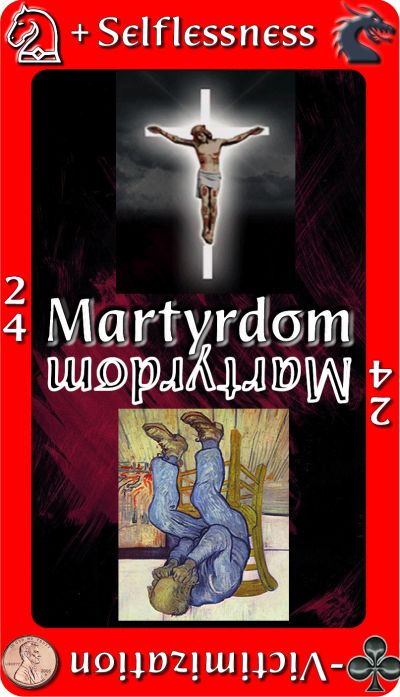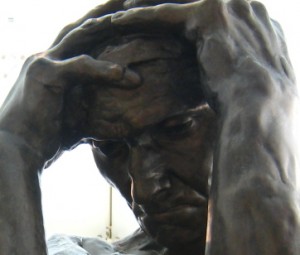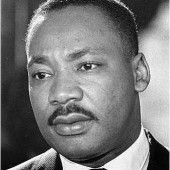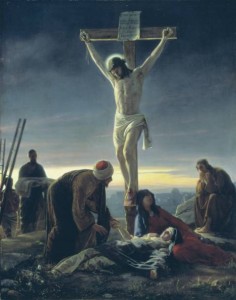24 Martyrdom

“I regret that I have but one life to give for my country.”
Spoken by Revolutionary War American Nathan Hale at his execution.

Symbol & Color
- Chess Knight The Horse: Warrior Set
- Dragon’s Head: Chief Feature Group
- Penny: Ordinal Ubiquity – the personal, close, sense of limited
- Clubs: Action Axis
- Border Color: Red – Warrior Set
Implications in the Upright Position or Positive Pole
The greatest story ever told is the symbol of the greatest act of Selflessness presented in the iconic image of Christ on the Cross. Martyrdom is a choice for a ca use. Jesus gave of himself not to be a victim, but to show his conviction in what he believed. However, the person whose selfless desire to allay suffering because he/she has gained understanding of that pain and misery it delivers has the capacity for mercy and compassion like few others. They have transcended pain and their fear of it. That is the positive outcome of facing the desire to be without Ego – ie. Selfless.
Card messages in the Illuminated position.
+ Selflessness
(magnanimity, deference, altruism, accommodating, austere, heroic, saintly)
- A martyr’s display of selflessness can be interpreted as a willingness to make the cause greater than themselves. Time to gain some control and stop pretending your only value is as fodder for the greater good. Or, is it time to take one for the team?
- Poor me, I am so selfless, so generous and giving but no one does that for me”. The Ego paints this picture and believes that by doing the dirtiest of jobs it will derive value. Someone is dramatizing a show of hard work, in hope of being rewarded with praise. Ask for what you need.
- Poet Robert Frost said, “Never be bullied into silence. Never allow yourself to be made a victim. Accept no one’s definition of your life; define yourself.” You must always challenge Martyrdom with Courage.
- You appear ready to do the work and assume the cost. It is a magnanimous gesture when you do it in selfless love. Get out of your own way.
- Al altruistic gesture does not have to diminish you, but it can uplift someone else. Give…and don’t require anything in return.
- A person’s display of nobility can be interpreted as a willingness to make a cause greater than themselves. Is it time to ‘take one for the team?’ Just remember, you win too!
- You may feel like a victim but it may bring victory.
- There is no greater act of altruism than to act with sincere selflessness. As you proceed, know that allowing whatever to happen and staying present with it is the greatest gift you can give.
- A principle you hold sacred is on the line. History’s martyrs gave everything they had for theirs. Whatever you would die should be less important than what you live for. This is not Lost Cause.
- When you ask for what you need, and don’t stop until the Universe responds, then you have a reasonable claim to integrity.
- No defeat is permanent unless one gives up.
- Your magnanimity shows in the highest display of chivalry and valor. Lay it down ONLY for those who are truly worthy of it. If not, get away from the whole situation.
Quotes signifying this pole
- “Every man has a right to utter what he thinks truth, and every other man has a right to knock him down for it. Martyrdom is the test.” Samuel Johnson
- “Let us all be brave enough to die the death of a martyr, but let no one lust for martyrdom.” Mohandas Gandhi
- “I have been astonished that men could die martyrs for religion –I have shuddered at it. I shudder no more –I could be martyred for my religion –Love is my religion –I could die for that.” John Keats
- “Never be bullied into silence. Never allow yourself to be made a victim. Accept no one’s definition of your life; define yourself.” Robert Frost On Martyrdom and Courage
- “Whatever is true, whatever is noble, whatever is right, whatever is pure, whatever is lovely, whatever is admirable—if anything is excellent or praiseworthy—think about such things.” St. Paul the Apostle, First century, Philippians 4:8
- “The victim should have the right to end his life, if he wants. But I think it would be a great mistake. While there’s life, there is hope.” — Stephen Hawking
- “Being happy is to stop feeling victimized and become the author of your own destiny. It is to walk through deserts, but to be able to find an oasis deep in one’s soul.” Pope Francis I
Implications of the Reversed Position and Negative Pole
A painting by Vincent Van Gogh, the Sorrowful Man at Eternity’s Gate, portrays a familiar body posture for a person with this CF: slumped over, head down, and sobbing inconsolably. Feeling powerless, and despairing of any relief, the person who perceives themselves persecuted by life, but might genuinely know sorrow, yet is just unable to cope. But complaining and wanton helplessness characterize this mindset in the negative pole. Strategies for attention are fixated on hostility and resentment of others who do not suffer in the same way. At being called to account for their behavior or condition, a negative martyr is mortified and infuriated that someone might actually challenge his assertion of being victim of circumstance; “that I am not to blame.” The philosopher Soren Kierkegaard paraphrased Martyrdom in both extremes very well, “The difference between a man who faces death for the sake of an idea and an imitator who goes in search of martyrdom is that whilst the former expresses his idea most fully in death it is the strange feeling of bitterness which comes from failure that the latter really enjoys; the former rejoices in his victory, the latter in his suffering.” Martyrs then are so focused on the guilt of the oppressor that seldom a moment of reflection takes place. Faced with enormous powerlessness to take a responsible stand, their own misery lays a wreath around the headstone on the grave of accountability. Today, when the perpetrator of a grave injustice is called upon to account, some instance of “poor me” surfaces and groveling commences. One has to go no further than Wall Street bankers after the 2008 housing collapse, to witness a perfect scenario when perpetrators claimed victimhood and pleaded for relief for problems which they, in large part, created.
Card messages in the Shadow position.
+ Victimization
(immolation, mortification, persecution complex, hypochondria, prostration, conquered, impoverished, whipped, subdued, immobile, suffering)
- Victimization comes with the Maya, ‘this always happens to me’. Prone to sadness, helplessness, demoralization, and feeling humiliated, there is some negative power being derived in this situation.
- Self-pity does not desire to see its own culpability. Beware of the passive-aggressive perpetrator. Watch your back!
- No defeat is permanent. Unless one gives up!
- The Victim Mentality is perpetually disposed to “take offense” at anything! Never doubt that one’s best intentions can bring hell down around you. Careful who you are talking to, they may have a load of resentment ready to launch.
- Time to stop pretending your only value is as fodder for some greater good. That is how soldiers willingly follow leaders who are behind the lines. Gain some control of your value and realize that while everyone has a stake, no one should unevenly bear the brunt of the burden.
- In the modern era, a concept termed “weaponized victimization” has emerged. It occurs when a group already with privilege or power, seizes upon an attempt by the less powerful to redress that imbalance, claims themselves to be the victims, … of a “power grab.” This dodge tactic was historically used by parents or clergy when persons, who were the actual victims of abuse, stood up and made accusations for accountability. In some cases, this results in a counter strategy of
blame-the-real-victim, for the problem. Sort of like saying “well he/she wouldn’t have been hurt if they weren’t (fill in the blank).” The situation is not complex, just complicated. Those screaming the loudest denial might not be personally guilty of anything, but they are afraid of what is being said since it means they’ll lose the privilege to act with impunity. The jig is up, and there will be a fight. In other words, you’ve outed a perpetrator claiming to be a victim. - Mohandas Gandhi who himself was martyred by an assassins bullet said, “Let us all be brave enough to die the death of a martyr, but let no one lust for martyrdom.”
- Stop whining and do something. Tell whomever to knock it off for a start! Things will go much better if you take a stand.
- it is OK to feel sorry for yourself for a while. But not indefinitely. Don’t confuse real defeat from external forces with giving up in cowardice.
Quotes signifying this pole
- “Martyrdom: The only way a man can become famous without ability.” George Bernard Shaw
- “The martyr sacrifices themselves entirely in vain. Or rather not in vain; for they make the selfish more selfish, the lazy more lazy, the narrow narrower.” Florence Nightingale
- “The torments of martyrdom are probably most keenly felt by the bystanders.” Ralph Waldo Emerson
- “Great persecutors are recruited among martyrs whose heads haven’t been cut off.” Emil Cioran – Romanian Philosopher
- “We live in a society of victimization, where people are much more comfortable being victimized than actually standing up for themselves.” Marilyn Manson
- “The real hopeless victims of mental illness are to be found among those who appear to be most normal. Many of them are normal because they are so well adjusted to our mode of existence, because their human voice has been silenced so early in their lives that they do not even struggle or suffer or develop symptoms as the neurotic does. They are normal not in what may be called the absolute sense of the word; they are normal only in relation to a profoundly abnormal society. Their perfect adjustment to that abnormal society is a measure of their mental sickness. These millions of abnormally normal people, living without fuss in a society to which, if they were fully human beings, they ought not to be adjusted.” – Aldous Huxley – Brave New World Revisited
Relevance within the Michael Teaching – Ordinal Action
Martyrdom causes a person to hold themselves as an object; usually one that is broken or flawed and cannot be fixed without some heroic endeavor. An endeavor that most would never choose to make unless the opportunity for growth weren’t so outstanding. This is the reason this Chief Feature is used by Essence: as potentially a last ditch effort to achieve some sense of power through the perceived useful death of themselves. A struggle resides in the psyche of the Martyr. Whether to give up or to go to on carrying a burden…righteously. But make no mistake, Martyrdom is not self inflicted like self-destruction, it is brought on by the actions of others.
 In the positive pole, the Martyr sees themselves as less relevant to life than to that of some cause of ideal. Like Jesus, Kennedy or ML King, this belief in some higher aspiration can actually make them feel superior for their efforts. Thus contradicting the notion that the martyr, even in this pole is actually sacrificing themselves. Instead, they are attempting to buy a status of one most loyal.
In the positive pole, the Martyr sees themselves as less relevant to life than to that of some cause of ideal. Like Jesus, Kennedy or ML King, this belief in some higher aspiration can actually make them feel superior for their efforts. Thus contradicting the notion that the martyr, even in this pole is actually sacrificing themselves. Instead, they are attempting to buy a status of one most loyal.
But complaint and wanton helplessness characterize this mindset in the negative pole. Strategies for attention are fixated on hostility and resentment of others who do not suffer in the same way. At being called to account for their behavior or condition a negative martyr is mortification and infuriated that someone might actually challenge his assertion of being victim of circumstance. But the aim in creation is a simple one: to cause a person so experience, albeit in a perverse way, some semblance of self care, even if it portends diminishing that same right in others.
As you might have inferred from this description, this Chief Feature (CF) is exceptional for creating karma with others and burning into one’s psyche a long term condition of self karmas around the theme of control, power, and guilt. These people are far less concerned about defense of anything so much as they are declaring how humiliated and therefore defensive they are. And of course, it is everyone elses fault!
To completely aggregate all acts of imposition upon others as simple victimization incurred by one’s own invitation – unconsciously invited would be equally as distorted as the opposite placing of blame on the world at large for one’s problems. To be injured by oppression, brutality, fraud, swindle, deception, and/or any force of nature: storm, animal attack, disease, or disaster, is to misstate the tenor of real world events for which a person is an unfortunate receiver of action. It is an ethos or attitudinal mindset with the prevailing sentiment that all that happens to a person their first response is self pity and helplessness. Victims of worldly circumstance may possess any CF and in fact may use adversity as a force of motivation to launch a person in a new direction. Some of histories greatest crusaders were cradled in such events.
The Dark Joy of the Oppressor and the Martyr is Schadenfreude – a pleasure derived from the misfortune of another. (Listen to Phil Collins Song “In The Air Tonight”) Pleasure and Low Vibration
Famous Persons
Osama Bin Laden, Julius Caesar, Jesus of Nazareth, John the Baptist, Martin Luther King, Nathan Hale, John Lennon, President John Kennedy, Robert F. Kennedy, Rigoletto, Abraham Lincoln,
Cultural Relevance
There are theories of Martyrdom and Victimization that extend into the realm of Sociology and Psychology. What do these things have in common? The both radiate emotional queues of helplessness and resentment; and psychological attitudes of powerlessness and self pity. It is here that the brewing cauldron of desperate action begins.
The philosopher Soren Kierkegaard paraphrased Martyrdom in both extremes very well. “The difference between a man who faces death for the sake of an idea and an imitator who goes in search of martyrdom is that whilst the former expresses his idea most fully in death it is the strange feeling of bitterness which comes from failure that the latter really enjoys; the former rejoices in his victory, the latter in his suffering.” However, the person whose selfless desire to allay suffering because he/she has gained understanding of that pain and misery it delivers has the capacity for mercy and compassion like few others.
And suffering is just what the victim is most angered by and desires to pass that experience to any and all it resents…which is most  everyone. Modern Terrorism has spawned a new type of martyr, the suicide bomber. Feeling helpless and controlled by a force larger and somehow more powerful than themselves, a conclusion of self immolation as the only means of having power or making a point. The problem: they are not present to enjoy the hoped for victory.
everyone. Modern Terrorism has spawned a new type of martyr, the suicide bomber. Feeling helpless and controlled by a force larger and somehow more powerful than themselves, a conclusion of self immolation as the only means of having power or making a point. The problem: they are not present to enjoy the hoped for victory.
To a lesser degree, the hypochondriac is another expression of the martyr with all the wrinkles, bump, bruises, aches, and pains called vociferously to the attention of anyone who will listen. And if you don’t listen: they will shout and grandstand about it. Martyrs tend to identify as victims and with other victims accept when a real victim of a crime or perpetration is present. Rest assured that jealousy and competition soon ensue for establishing who is the most wounded and who deserves the greatest pity about it. Right-to-life protestors, identifying with the innocence of the “unborn” will and have killed Doctors with righteous venom. Additionally, in the days prior to Roe-v-Wade made it such that a living women whose life or reputation or freedom was jeopardized by an unwanted pregnancy, risked the possibility of death at the hands of a backroom abortionist. No empathy, but a distorted sense of idealistic pride in their intolerance like having a fresh water pond that choked with decaying algae. It stinks and eliminates life existing.
Martyrs then are so focused on the guilt of the oppressor that seldom a moment of reflection takes place. Faced with enormous powerlessness to take a responsible stand; their own misery lays a wreath around the headstone on the grave of accountability. Today, when the perpetrator of a grave injustice is called upon to account, some instance of “poor me” surfaces and groveling commences. One has to go no further than Wall Street bankers to witness a perfect scenario of when perpetrator claims victimhood.
You might struggle with the Dragon called Martyrdom if…
- I blame the faults of others for my own dilemma.
- Feel helpless to change my situation.
- I want others to rescue me and feel sorry for me.
- My suffering is a mark of my attempts to do good.
- I am often sick or put upon or limited by the outside world.
- No one can ever understand how terrible it is to feel this way.
- My own value is best achieved if I do something heroic and perhaps even give my life for it.
- I relate to Jesus on the cross and other Martyrs who died for their principles.
